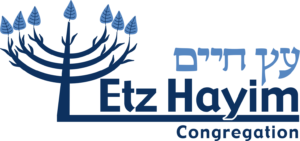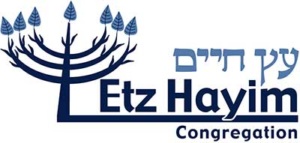We hope you will have a good Shabbat, peaceful and healthy.
Mazal tov to Dalia Singer, her parents, Gary and Jeannie, and her siblings, Jacob and Aviva. We look forward to celebrating this milestone with you later in the year!
And please join us on our Facebook page tonight for Kabbalat Shabbat! You don’t have to be a part of Facebook to join us in tefilah.
Vayikra – Sacrifices and Their Meaning for Us
This week’s Torah portion, Vayikra, starts the Book of Leviticus, called Vaiykra, in Hebrew (we name the Torah portions by the first word that is less common in the Torah, and we do the same for the Books of the Torah. This week we start a new book, so the first Torah portion and the book have the same name). Vayikra describes parts of the sacrificial cult. The first 3 chapters describe the sacrifices that the rabbis in the Talmud characterized as a nedavah, or voluntary offerings. Chapter 4 and 5 describe a few of the expiation sacrifices.
The idea of sacrifices seems archaic to us. Yet this book, the Book of Leviticus, sits in the middle of the Pentateuch, which I take as a symbol to its centrality in our tradition. The word in Hebrew for sacrifices is korban, which comes from the root k-r-b, the root of the verb “to come close.” In ancient times, the korban brought us close to God. In the texts below we will examine their meaning for us.
A. Dr. Tikva Frymer-Kensky, Parashat Vayikra
The theology of these sacrifices is not explicitly articulated, so we have to take our clues from philology. In the Bible (and elsewhere in the ancient Near East), the terms for sin or misdeed are also the terms for punishment. The deeds that you do (and in fact also the words that you speak) create a new reality. A curse sits out there waiting to land; a misdeed does the same. Moreover, it does not stay up indefinitely: A curse will land where it is sent; an oath or misdeed will come back whence it has come. This is a fact of nature, and does not require an outside judge (divine or human) to make it happen. If you commit an ‘avon, which we translate “sin”, then you will “bear” that ‘avon (nasa’ ‘et ‘avono) unless God intervenes and bears that ‘avon for you (nasa’ avon). If you committed an act and have repented, you can petition God to be gracious and carry it for you. This may or may not work. But if you are not even aware of it, you cannot even petition. Somehow, you seek to protect yourself and family from having the sin land on you. This is the purpose of the expiatory sacrifice: it sets up an umbrella over/upon you (kipper ‘aleichem, ‘alaw) and under it you are shielded (wenislah lahem, lo).
1. According to D. Frymer-Kensky, the Torah does not give us an explanation of the meaning of the sacrifices. She finds a meaning for them by studying the language in the text. By having the same words for sin/misdeed and punishment, what do you think is the message that the Torah is trying to convey to us?
2. The end of our Torah portion describes the expiatory sacrifices. Why does Dr. Frymer-Kensky think the ancient Israelites needed this kind of sacrifice? Do we need/want to have a ritual with a similar meaning in our times? What would a ritual of expiation for unknown sins look like for us?
B. Abraham Joshua Heschel, Prayer is Sacrifice
Prayer is more than meditation, and reading the prayers involves more than reproducing vocally, while following their symbols with the eyes, the words of the liturgy. A third-century scholar avers that it is improper to call upon the person who acts as the reader of prayers for the congregation by saying, Come and pray; we must rather use the words, Come, karev. Since the Hebrew word karev has four meanings, the invitation extended to the person signifies the four tasks which a reader has to fulfill. Karev means “offer our sacrifices, satisfy our needs, wage our battles, bring us close to God!” The statement that since the destruction of the Temple in Jerusalem, prayer has taken the place of sacrifice does not imply that sacrifice was abolished when the sacrificial cult went out of existence. Prayer is not a substitute for sacrifice. Prayer is sacrifice. What has changed is the substance of sacrifice: the self took the place of the thing. The spirit is the same. In moments of prayer we try to surrender our vanities, to burn our insolence, to abandon bias, hypocrisy, envy. We lay all our forces before God. The world is but an altar. We do not sacrifice. We are the sacrifice.
1. Dr. Heschel establishes a relationship between the cultic practices of the ancient Israelites and our cultic practices. He paraphrases a third century scholar that teaches that the leader of our prayers has tasks to fulfill. Why do you think it is important to use the term karev to invite the person to lead us in prayer? What must this person feel when they are leading the congregation in prayer? When you lead tefilah, do you feel that way?
2. Why is it important for Dr. Heschel to establish that prayer is not a substitute for the sacrifices, that prayer is sacrifice? What, according to him, are we sacrificing when we are in moments of prayer? Do you think this is an important function of prayer in our days?
C. Korbanot: Recovering Our Spiritual Vocabulary. Ira F. Stone
Death is what distinguishes the mortal from the immortal, the Divine from the human. In every place and at every moment that God is present, man is not alone, except at the moment of death; in death, man is fully mortal and God cannot experience this fullness of man’s mortality. Death is the absence of God. Yet, if our mortality cannot be transcended, then it has no meaning. To transcend death is to draw close to God. In sacrifice, man gives back to God that which separates God from man, that is, death. In doing so, man is able, for a fleeting moment, to imagine his own death and, thereby, experience his future immortality as well. No other form of worship brings man so near the fact of his own death and, therefore, no other form of worship is as effective in liberating man from the constraints of life lived in the shadow of that death. Atonement through korban, the drawing closer to God in the experience of death, is no mere ritual but the process by which the potential paralysis of despair is dispelled, allowing the worshipper to act in the world. The power of liturgy to provide an environment for the mortality/immortally struggle into which God is drawn through korbanot is not limited to prayer. The repetition of the sacrificial laws is not to be understood as the functional equivalent of a magical incantation, but rather as the traditional liturgy expressly provides, as a complete, living substitute for that lost, richly-textured and meaningful ritual.
1. According to Dr. Stone, what was the function of animal sacrifice for our ancestors? How do you imagine the ancient Israelite confronted their mortality through this ritual?
2. What is the power of liturgy, according to Dr. Stone? Why should we recite the words of the mussaf service? How can we use prayer as a substitute for that intricate ritual and for the message that it imparted to our ancestors? How will you approach the mussaf service now?


